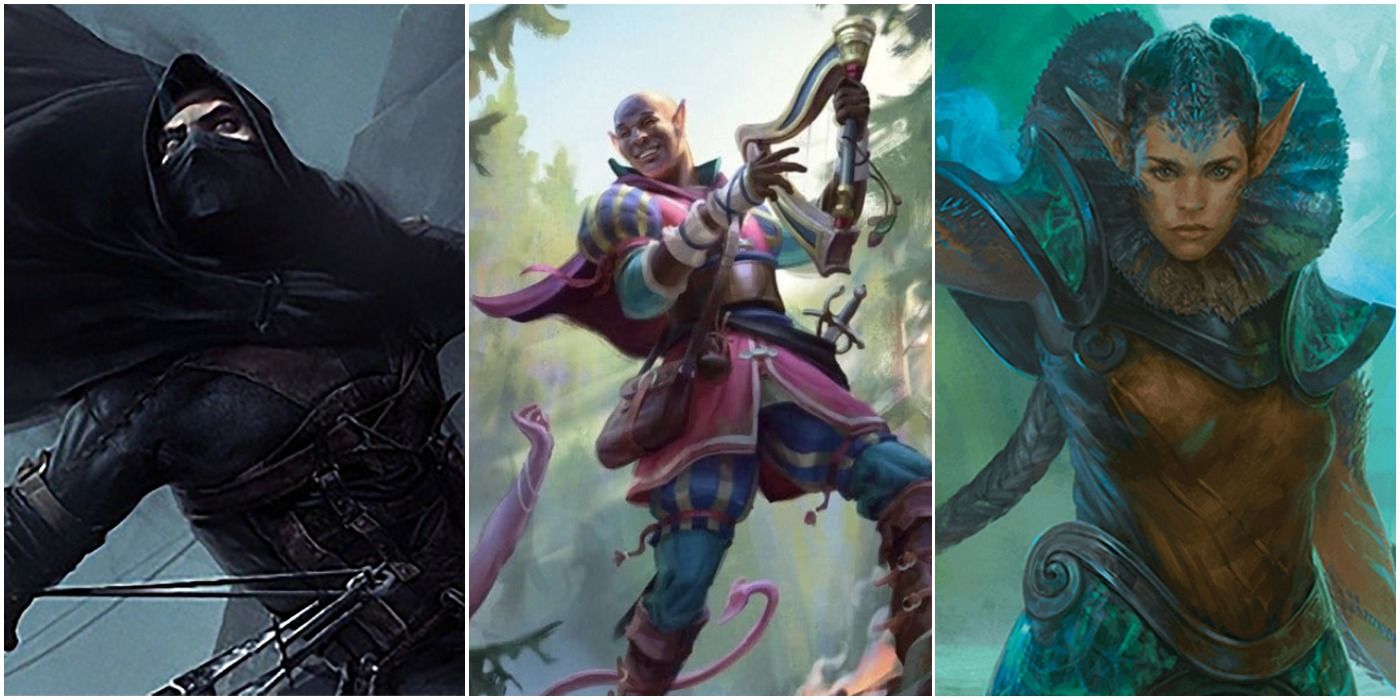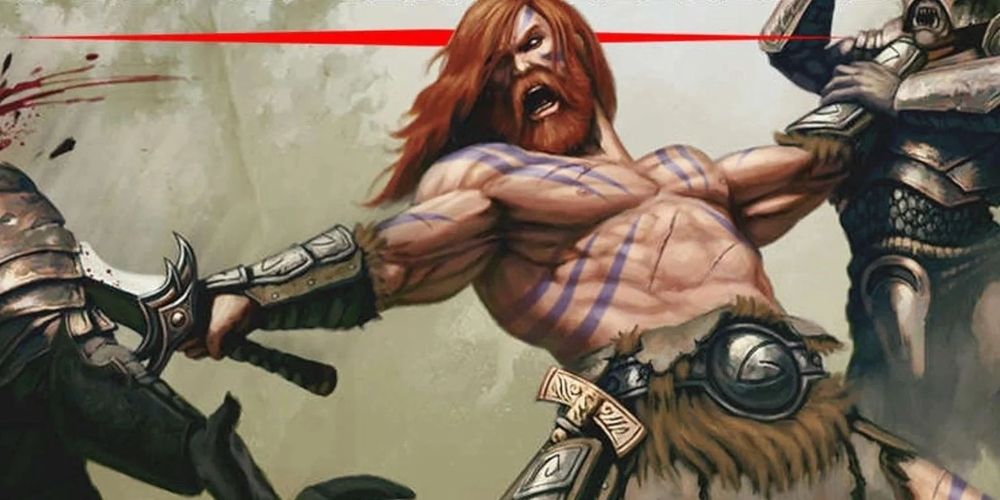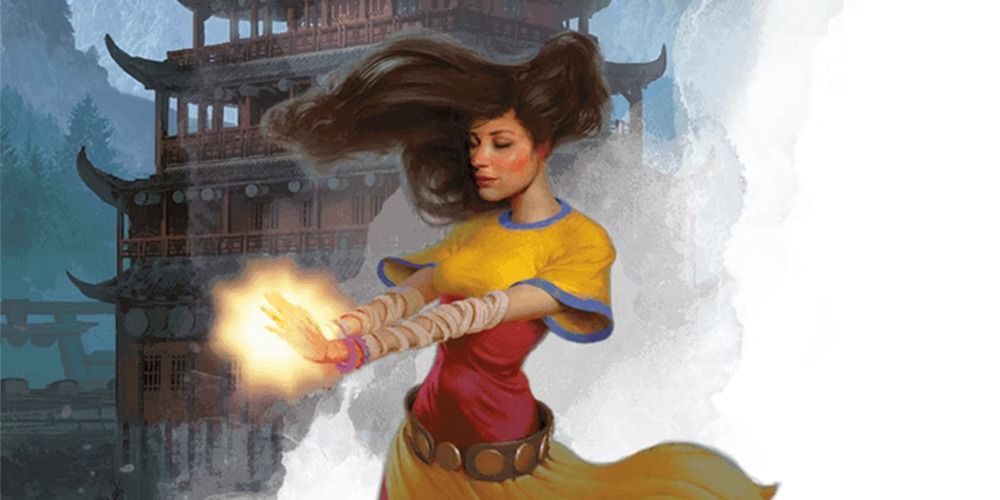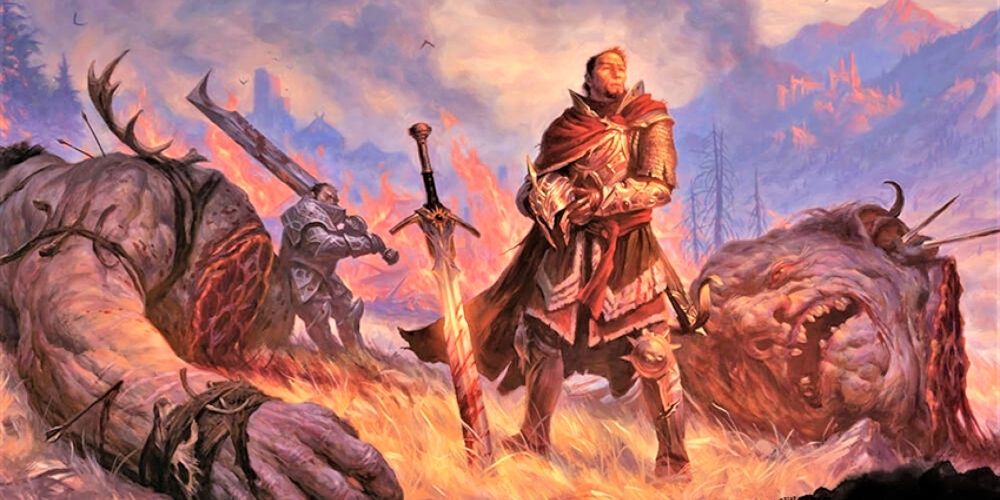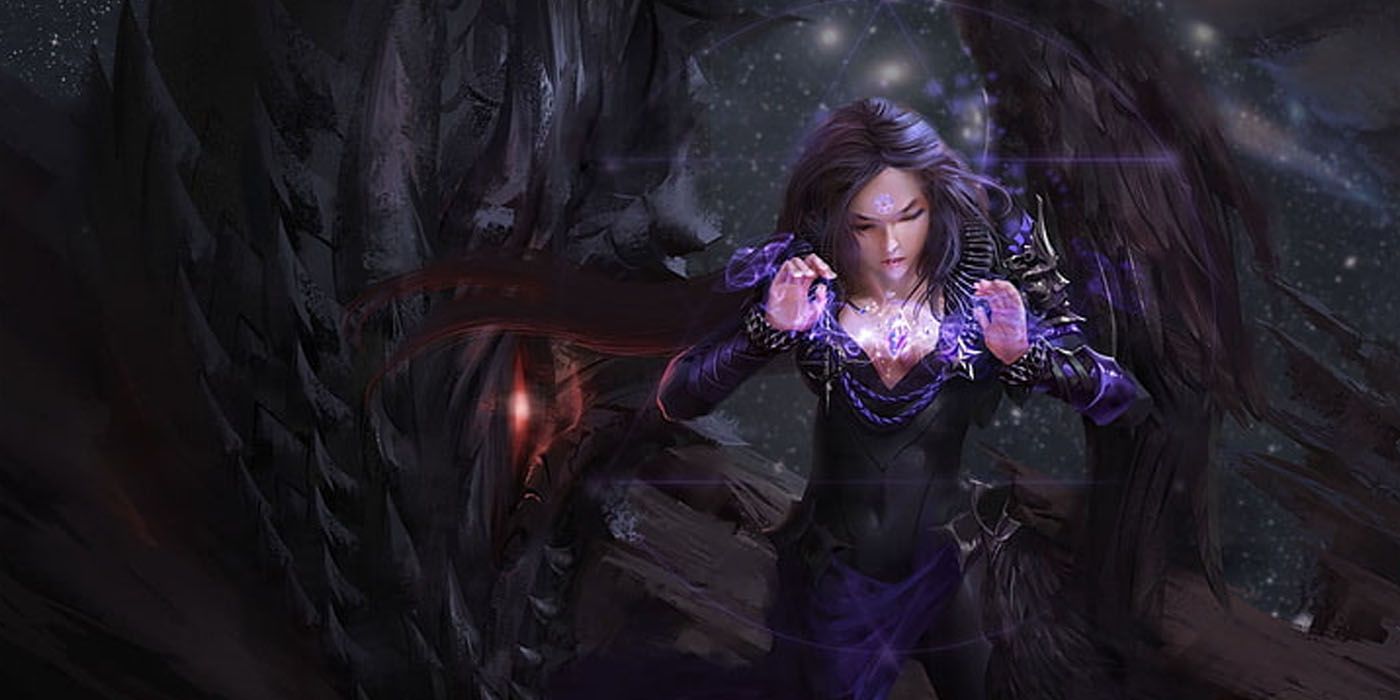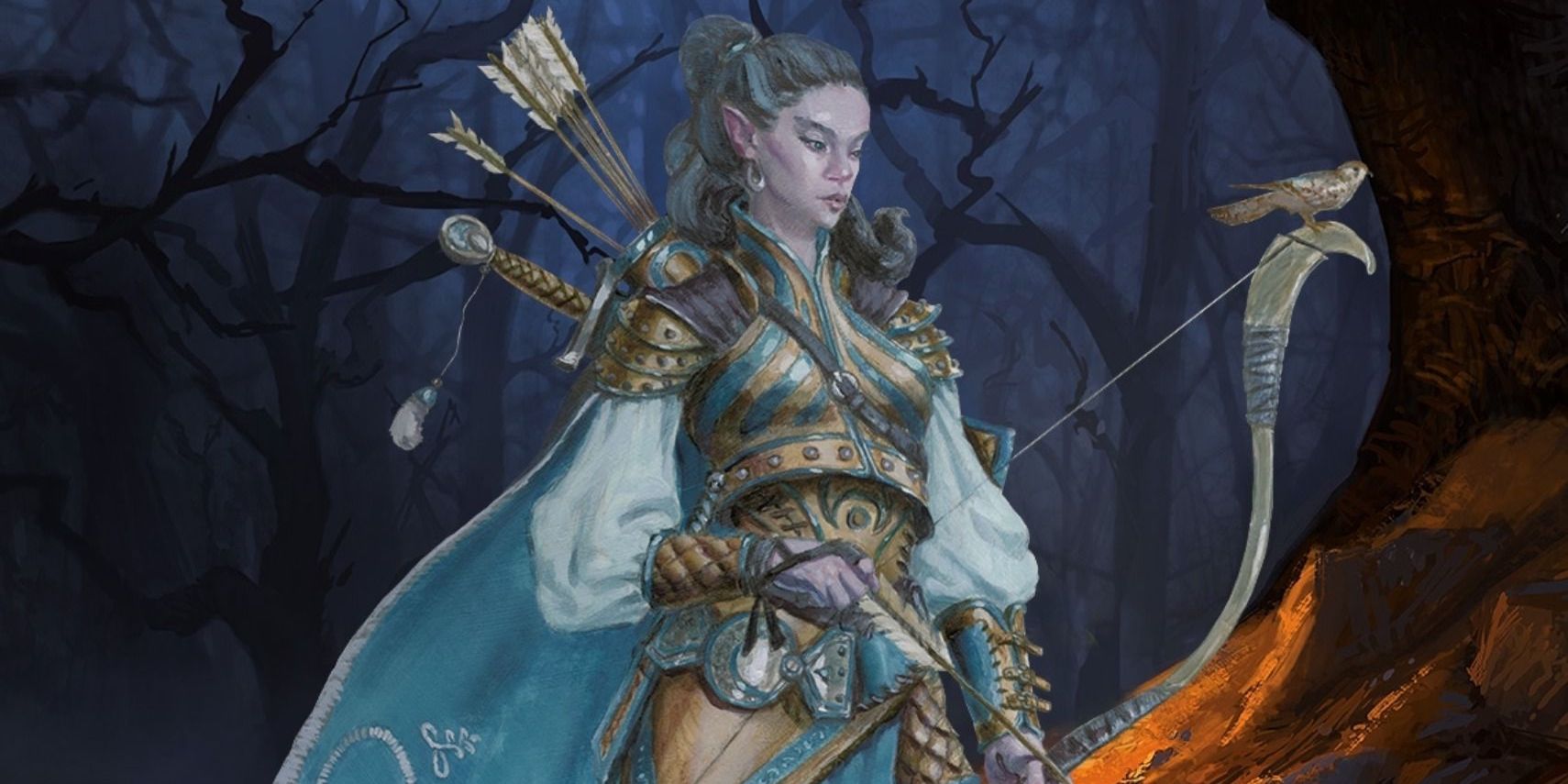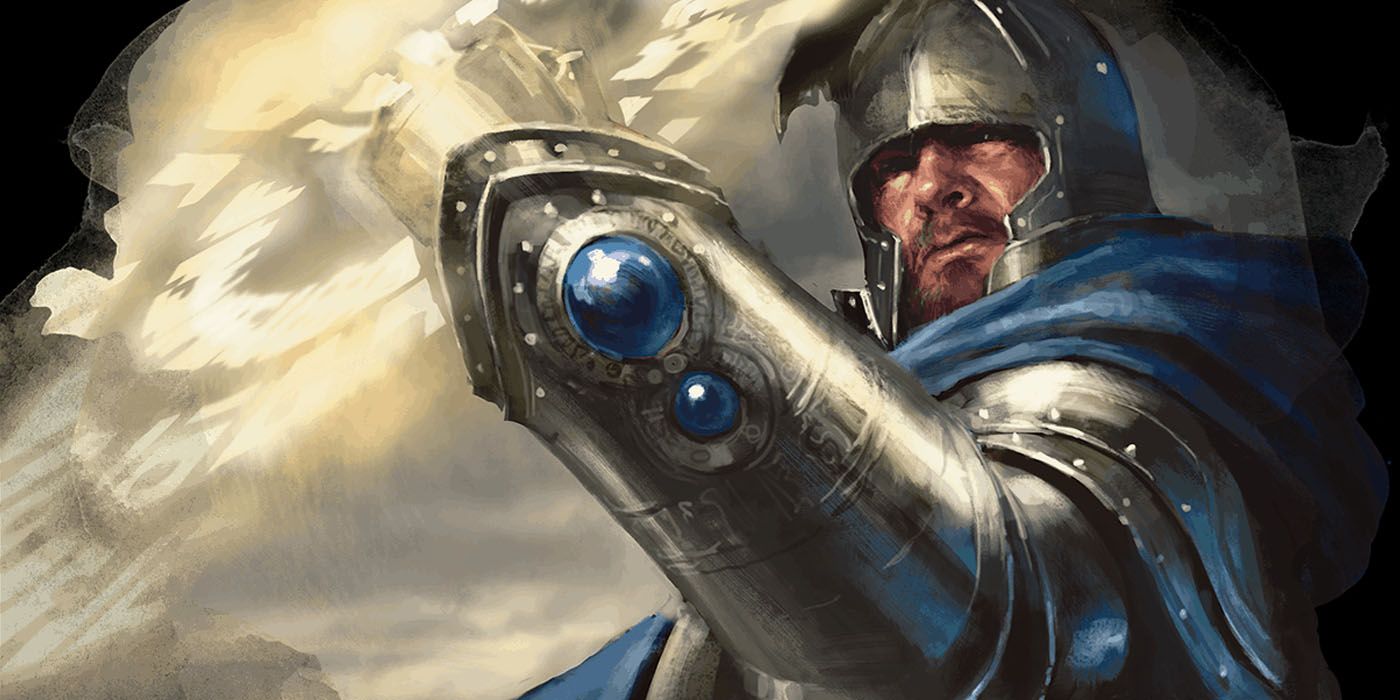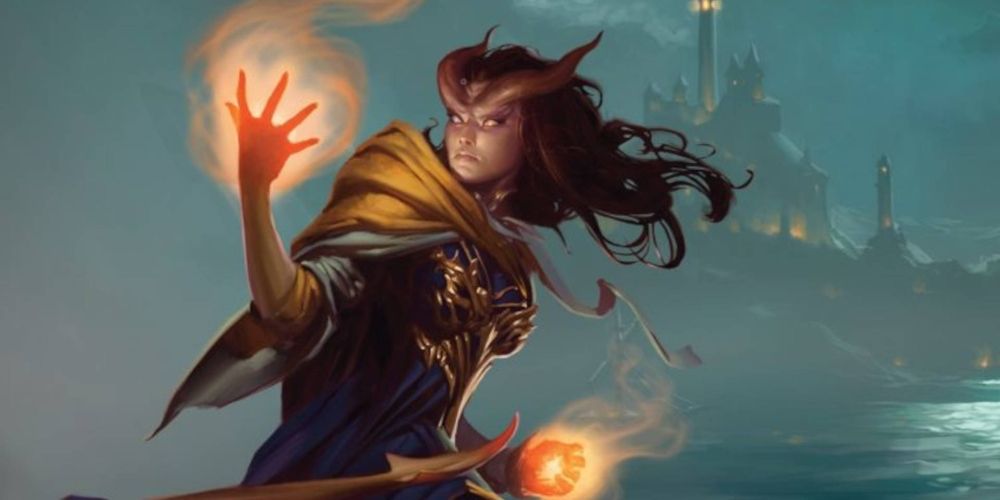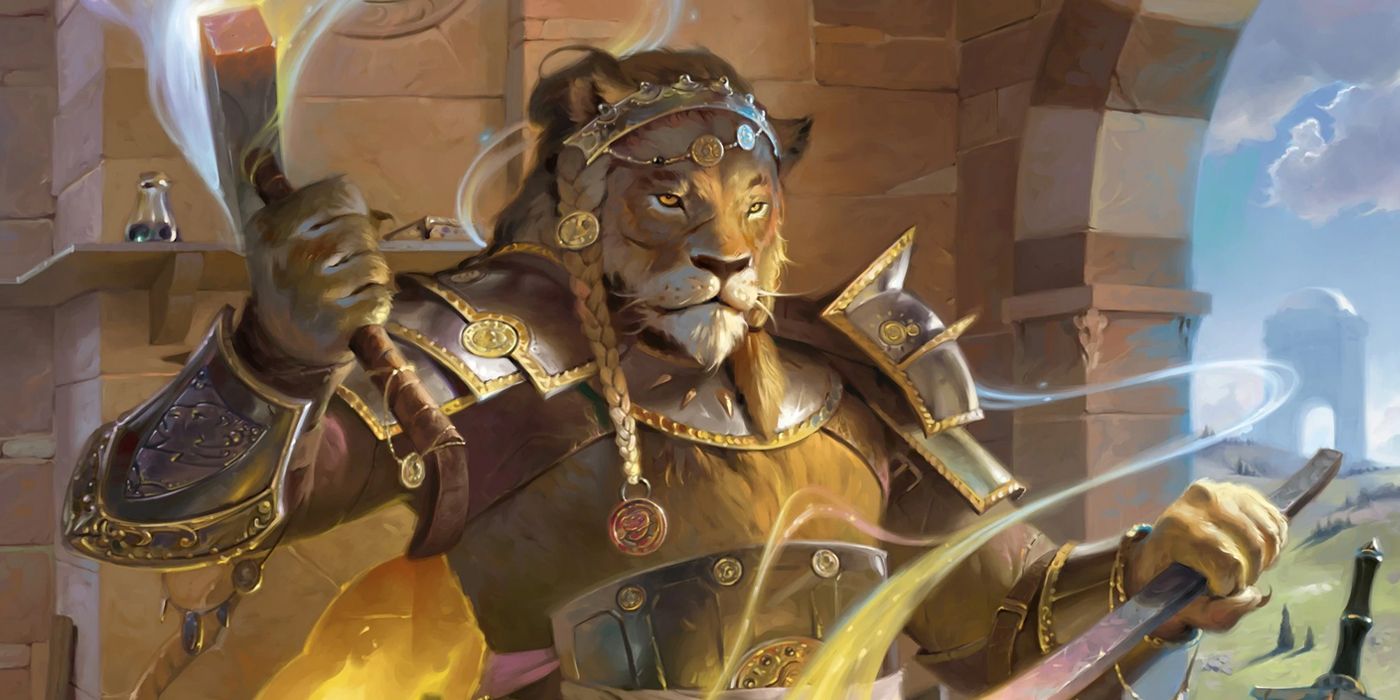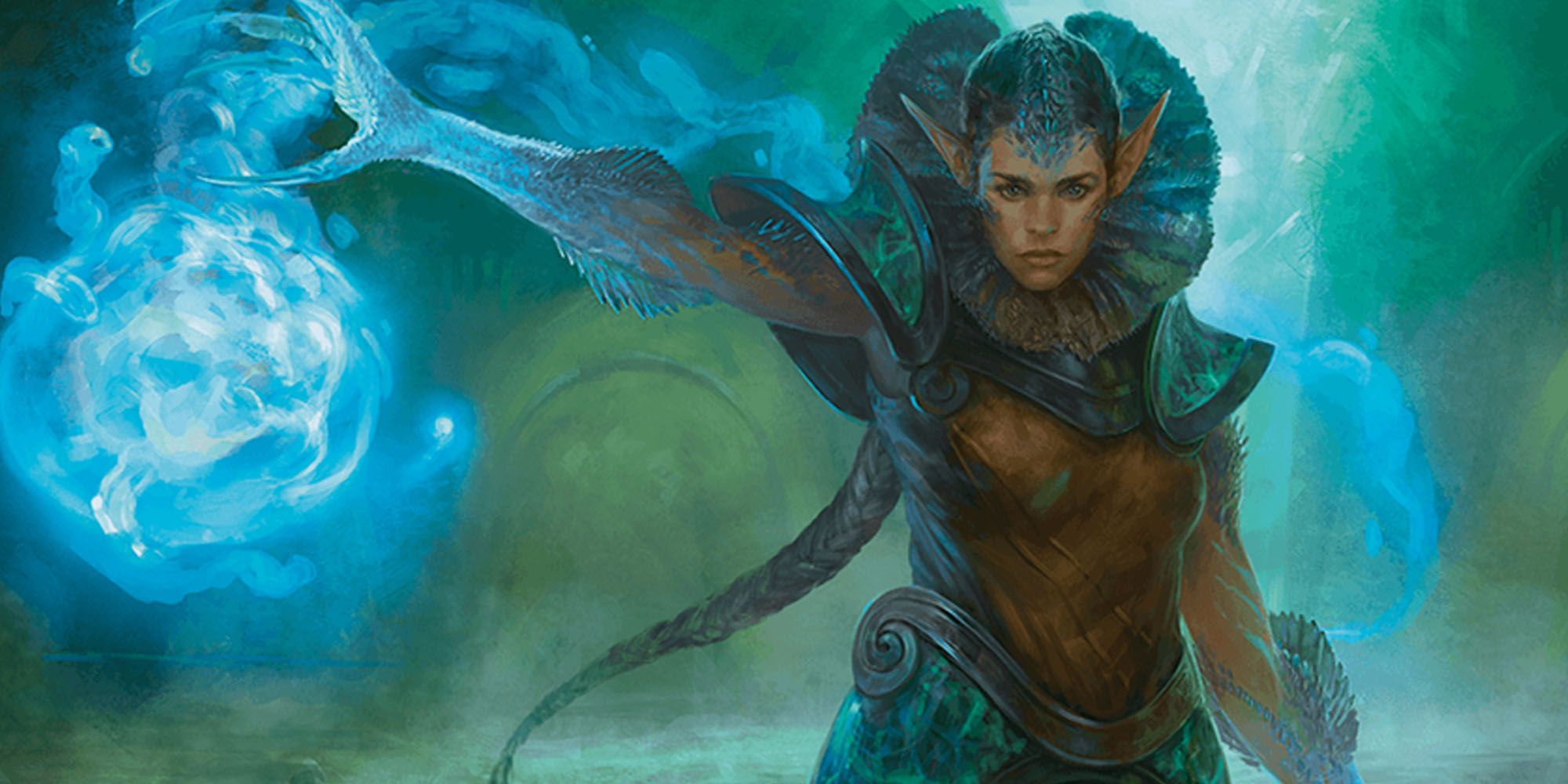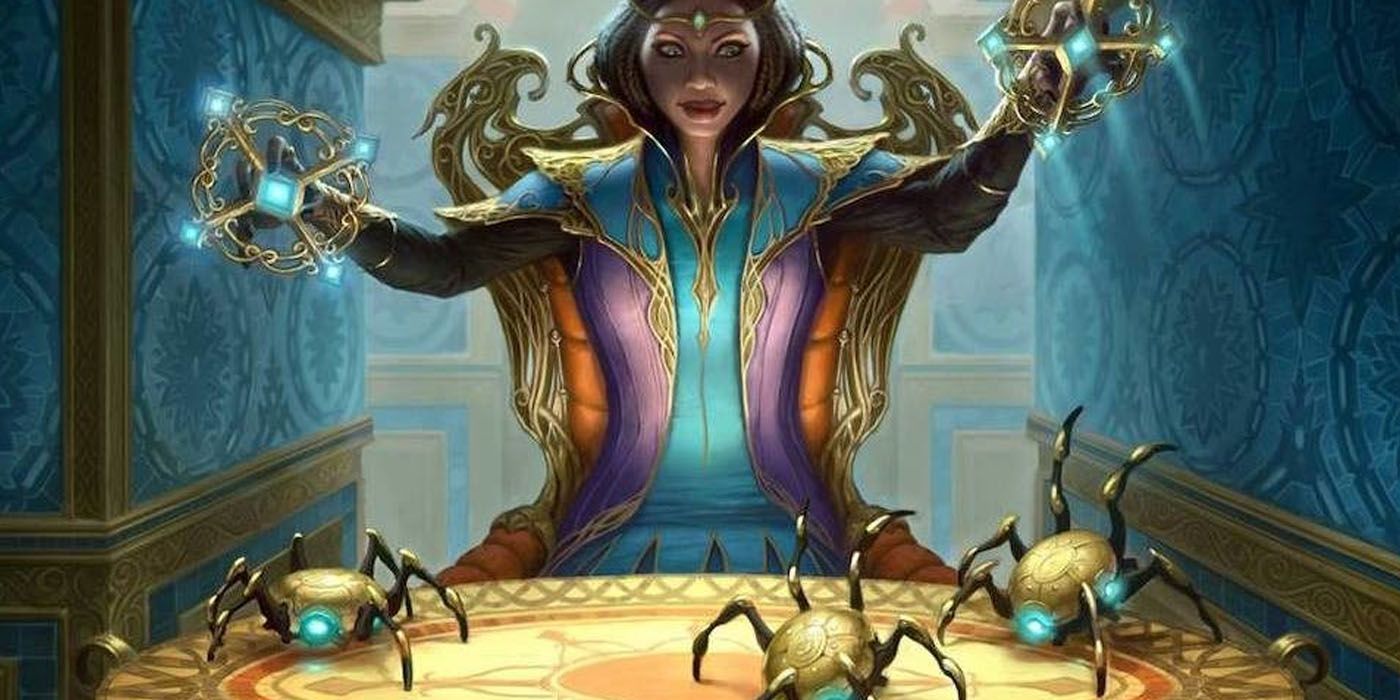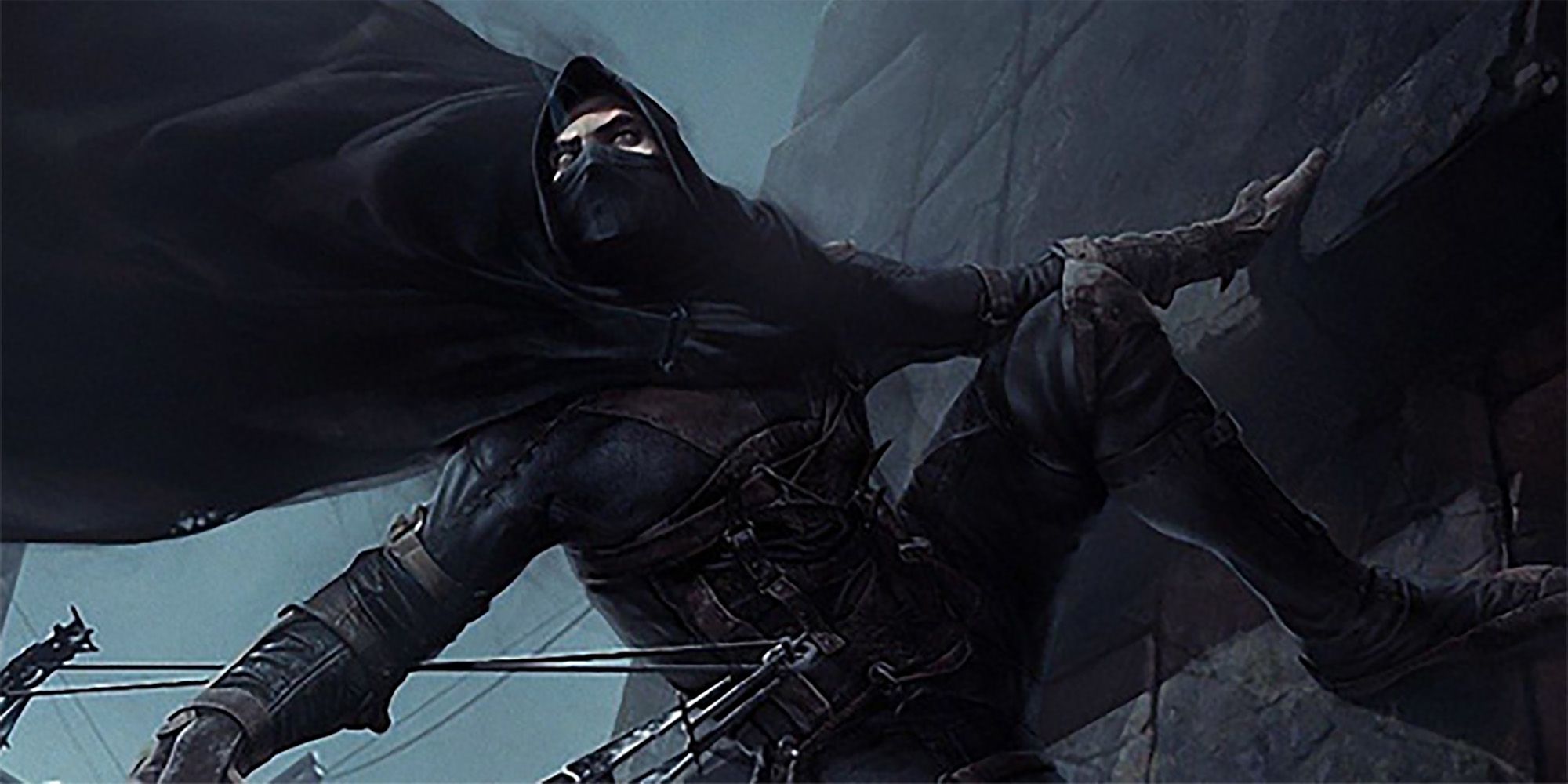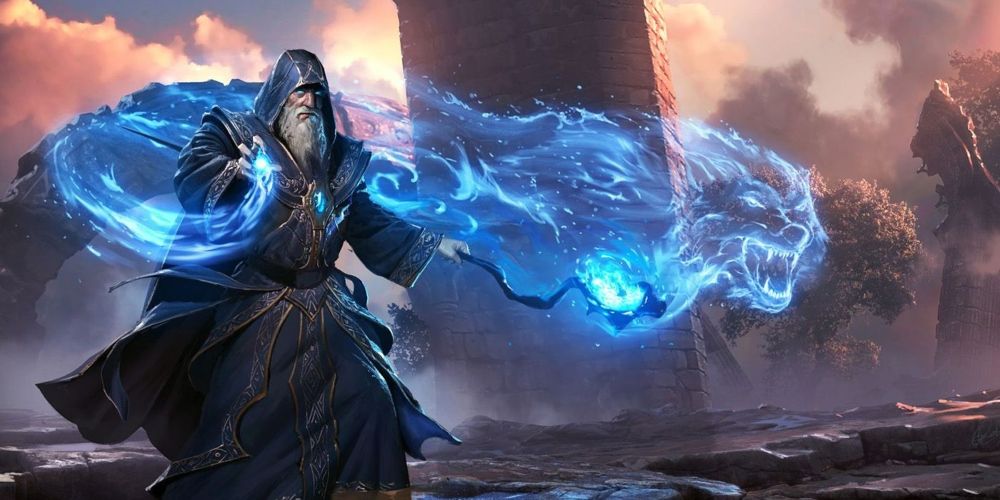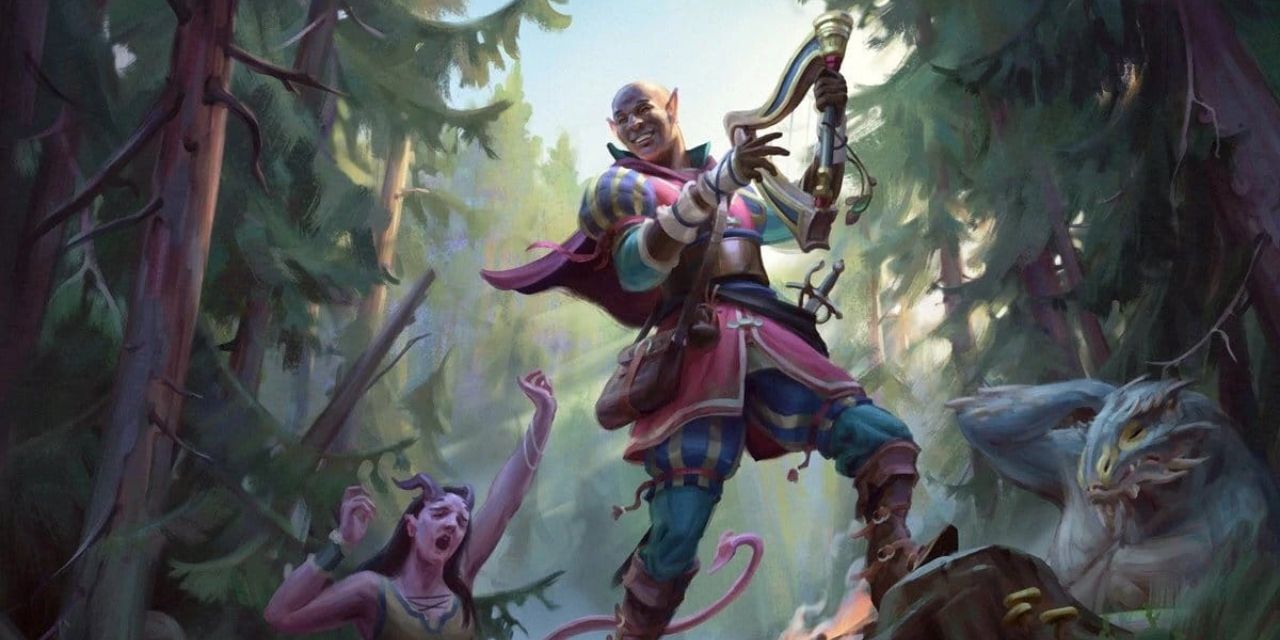There are many aspects to Dungeons & Dragons gameplay. Combat and dungeoneering are major components, but most campaigns also include socializing, exploration, stealth, puzzles, and more. Even combat requires people able to deal damage, take damage, heal, cast spells, and control enemies, all while staying alive.
With most D&D parties having between three and five people, it can be a challenge to fill all of these roles at once. While no class in Fifth Edition is restricted to just one role - despite popular stereotypes - some are far more flexible than others, able to lay claim to the title of the best D&D class for flexibility.
Updated 22nd of August by Isaac Williams: Versatility is important to any party, and players often want to know how flexible their character can be before they create them. As such, this list has been updated to include every class in Fifth Edition, and to better reflect just how versatile each can be.
13 Barbarians Are Limited Outside Of Combat
While no class in D&D 5e is one-note and completely limited, barbarians pay the price for being the simplest class in the game. They fulfil an obvious and valuable niche in the party, being an effective combatant who is able to deal and take a lot of damage. But barbarians struggle to do anything outside of that niche.
Barbarians cannot cast spells while using their signature feature Rage, which is a huge limiting factor. They lack many abilities to do much else other than give or take damage, with most barbarian subclasses focusing on increased damage or resiliance. Outside of combat, all they have to rely on are skill proficiencies - which they get in smaller numbers than many classes.
12 Monks Have An Element Of Combat Versatility
Monks are an unusual 'martial' character in 5e. They lack the outright damage or survivability of other classes, trading those away for a bag of tricks. As such, they're less straightforward warriors, and more secondary fighters. In particular, they excel at slipping through enemy lines and attacking weaker targets.
Monks get a number of ways to affect their enemies in combat. They can use Flurry of Blows to increase their damage, Stunning Strike to lock down enemies, or use their unique subclass features. Ultimately, they have to search for ways to make themselves useful, but have a number of tools they can bring to the table.
11 Fighters Strive For Utility, But Often Fall Short
Fighters have one of the more obvious primary purposes in a D&D party, given their name. They're a class primarily intended for combat, and can lay claim to being the best D&D class for using weaponry. Their Fighting Styles mean that the class can use almost any sort of weapon effectively, able to fight close-up, fire from range, or tank enemy blows.
However, fighters fall off outside of combat. Most of their features center around killing enemies, and at base they get no access to magic or other more utility-focused skills. Fighter subclasses go some way to remedying the issue, often giving fighters spellcasting or improving their skills in social interactions, but they can't compensate for the flaws in the base class.
10 Sorcerers Are Designed To Specialize
Magic in D&D 5e is versatile and powerful enough to make most spellcasters capable of fulfiling several roles, but that doesn't mean all spellcasters are particularly versatile. Sorcerers are unquestionably the most restricted spellcaster in 5e, even with Metamagic letting them alter their spells on the fly.
Every part of a sorcerer's kit is designed to make them specialize, in contrast to more generalist classes like the wizard. With limited spells known, and most Metamagic options working well for particular functions, a sorcerer is best if they specialize in an area like dealing damage, buffing, debuffing, or similar. While sorcerers as a whole can fulfill a lot of different roles, any given character will probably be a specialist.
9 Rangers Excel In Exploration And Can Fight As Well
Rangers are an unusual case for versatility in 5e. Rather than being a class with a number of options open to them, they're instead pidgeonholed in two separate directions, and are able to do both very well. Regardless of how they're built, a ranger is likely to focus on two areas: combat and exploration.
Most of the ranger's features and spells are centred around doing damage, and a lot of their more flavorful features make exploration a breeze. Rangers also get access to healing and some utility magic - and certain classes like Fey Wanderer excel in social situations - but the class has a much stronger focus on thsoe two areas above all.
8 Paladins Are Dangerous In Battle, And Charismatic Outside Of It
Paladins are notorious in D&D 5e for their power level. They are already one of the best classes at straightforward combat, being nearly as effective as the fighter with weapons, while also being able to use spellcasting or Divine Smite to sharply ramp up their damage. Despite this combat power, however, they are also useful for more than just damage.
Paladins have innate healing with Lay on Hands, and their magic has healing, utility, and buffing spells as well as damaging ones. Furthermore, they rely on Charisma for many of their abilities, making them good at conversing with NPCs and passing social checks as well.
7 Warlocks Are Casters With Additional Tricks
Warlocks are unique spellcasters in 5e in ways that can hold them back in their versatility. They cast a smaller number of more powerful spells than other casters, getting their few spell slots back on a short rest. However, where their spellcasting falls short, their invocations add greatly to their versatility.
Choosing the right set of invocations can transform a warlock from a caster type to a scout to a combat-focused character, all while remaining effective in each role. While they might not be as skilled as a class focused specifically on that, with the right build, a warlock can fit most niches a group may require.
6 Cleric Subclasses Provide Specialization On A Generalist Base
Clerics are one of the more heavily-stereotyped classes in Dungeons & Dragons, with the assumption being that they're good for healing and nothing more. However, the class has always been more capable than it's given credit for, and this is especially true in 5e.
The cleric has a particularly versatile base class. Between its spells and its base abilities, clerics can deal damage, cast extremely varied spells, and at high levels even call down a god to help them. Subclasses provide the cherry on top, each one adding a specialization like stealth, mass damage, or healing to a class that can already do plenty.
5 Druids Have Their Spellcasting And A Unique Niche
Druids are an unusual spellcaster in 5e. Despite having access to ninth-level spells, and almost as flexible spellcasting as the wizard, they also get a great number of other features. Their magic, although often lacking in direct damage, can do almost anything else. As long as it's related to nature, they have utility, healing, crowd control, and far more.
On top of that, Wild Shape gives druids a unique niche. On any druid, it has boons for disguise, stealth, and travel that few classes can replicate as cheaply. Several subclasses give it additional uses, from the Circle of the Moon using Wild Shape to become a frontline warrior to the Circle of Stars using it to become a ranged damage-dealer, a prime healer, or an expert with concentration spells.
4 Artificers Are Generalists Through And Through
The first new class added to 5e since its release, artificers are unique in their design. They're the first arcane 'half-caster' in the game, the wizarding equivalent of the ranger or paladin. Unlike those classes, however, they have less of a focus on combat, and indeed less focus overall.
Instead, artificers are good at a broad variety of things, but none so well as dedicated characters. Every subclass gets some way of dealing good damage, they get a number of healing spells, and they have a selection of buffs, debuffs, and utility spells. They can even create items to help their party do well at various roles.
3 Rogues Have Skills And Expertise To Do Almost Anything
While the popular image of the D&D rogue has them focused on sneaking around and knifing enemies in close combat, the class is actually the most versatile non-spellcaster in the game. They're commonly known as a "skillmonkey," a type of character that is designed to get a huge number of skills, and to use them well.
Rogues get some of the most skill proficiencies of any class in D&D, and get Expertise on top of that to make them excel in several areas. Ultimately, the rogue is the character to have for miscellaneous problem-solving, even on top of their combat prowess and their subclass abilities.
2 Wizards Can Prepare Spells For Every Occasion
Of all the purely spellcasting classes, wizards are by far the most versatile. There are arcane spells that do pretty much anything, and wizards can learn them all. Their only limiting factor is what spells their Dungeon Master will allow them to come across during the course of a campaign.
Most wizard subclasses focus in a specific direction and towards a specific school with their magic, but there is nothing forcing them to use those spells or preventing them from using others. Ultimately, a wizard can prepare themselves to tackle nearly any problem, and the next day prepare different spells to handle anything they missed previously.
1 Bards Can Play Multiple Roles On Any Stage
Bards are very deliberately the best D&D class for versatility. They are very hard to specialize, as they don't lean in any one particular direction. They can't deal much damage at base, but they have access to plenty of skills, a bit of healing, a fair bit of supportive magic, and a few spells that can ruin an enemy's day.
The bard's ability to boost allies, use almost as many skills and Expertises as the rogue, and to cast ninth-level spells would alone stand the class in high stead, but the bard has even more. From the ability to learn spells from any class in the game, to Jack of All Trades making them passably good at every skill, to subclass abilities that boost them even further, bards can do almost anything they turn their minds to.

